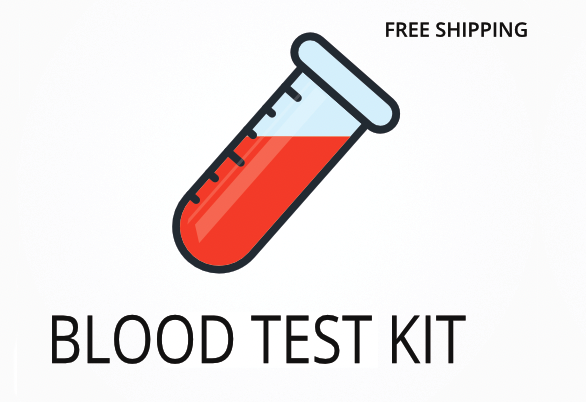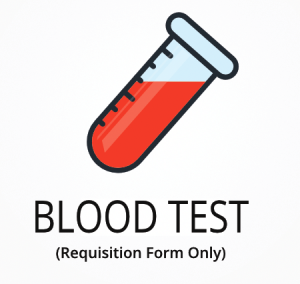Ordering the Heavy Metals Red Blood Cell Test | Great Plains
The Heavy Metals Red Blood Cell Test from Great Plains is designed to measure both toxic and essential metals in your red blood cells, providing a detailed look at long-term exposure and nutrient status. This test is especially useful for those who may have unexplained symptoms that could be linked to heavy metal exposure or imbalances in essential minerals. Interestingly, red blood cell testing can reveal chronic exposure to metals that may not show up in standard blood tests, as these metals accumulate in cells over time.
Ordering this test offers several specific benefits:
- Detects hidden exposure to toxic metals like lead, mercury, and arsenic that may not be found in routine blood tests.
- Assesses levels of essential minerals such as zinc, magnesium, and selenium, which are important for many body functions.
- Helps identify possible sources of unexplained symptoms like fatigue, headaches, or concentration problems.
- Supports targeted treatment plans by providing precise data on both toxic and essential metals.
- Tracks changes in metal levels over time to monitor the effectiveness of interventions or lifestyle changes.
Who Should Consider Red Blood Cell Metal Analysis
People who have ongoing symptoms like brain fog, memory loss, or joint pain, especially after moving into an older home or starting a new job in an industrial setting, may benefit from this test. For example, someone who recently noticed increased fatigue and headaches after a home renovation could use this test to check for lead or other metal exposure.
Ordering this test may also be helpful in these situations:
- Children with developmental delays or learning difficulties.
- Adults experiencing unexplained hair loss or skin rashes.
- People with a history of working in industries with metal exposure, such as battery manufacturing or welding.
- Those with persistent immune system issues or frequent infections.
- People who use imported herbal supplements, as some may contain hidden heavy metals.
Testing for metal levels in red blood cells can pinpoint the cause of symptoms like muscle weakness, mood swings, or concentration problems by showing if toxic metals or mineral imbalances are present. Delaying this test could mean missing the chance to address ongoing exposure or correct deficiencies before they lead to more serious problems. To move forward, consider ordering the test to get clear answers.
Preparing for Toxic and Essential Metal Screening
Fasting is not required for this test, but it is important to follow the instructions provided in your test kit for the most accurate results. Always go by any specific directions your doctor or healthcare provider gives you to ensure your sample is collected and handled correctly.
Labs Included When Ordering Your Heavy Metals Red Blood Cell Test | Great Plains
| Test Name | Reference Range | Significance | Low and High Levels of Heavy Metals Red Blood Cell Test |
|---|---|---|---|
| ESSENTIAL METALS | |||
| Boron | 0.01–0.10 | Boron supports bone health and helps the body use other minerals like calcium and magnesium. It also plays a role in brain and immune function. | High levels mean possible overexposure, which may affect hormone balance.
Low levels mean possible bone or joint issues. |
| Calcium | 30–100 | Calcium is needed for strong bones, muscle movement, and nerve signaling. It is also important for heart and blood vessel function. | High levels mean risk of kidney stones or heart rhythm problems.
Low levels mean possible muscle cramps or weak bones. |
| Chromium | 0.01–0.10 | Chromium helps the body use insulin and manage blood sugar. It is also involved in fat and protein metabolism. | High levels mean possible kidney or liver stress.
Low levels mean possible blood sugar problems. |
| Cobalt | 0.01–0.10 | Cobalt is part of vitamin B12, which is needed for making red blood cells and keeping nerves healthy. | High levels mean possible thyroid or heart issues.
Low levels mean possible anemia or nerve problems. |
| Copper | 0.60–1.20 | Copper helps make red blood cells, keeps nerves and the immune system working, and helps the body use iron. | High levels mean possible liver or brain issues.
Low levels mean possible anemia or weak immune system. |
| Iron | 900–1,100 | Iron is needed to make hemoglobin, which carries oxygen in the blood. It also supports energy and brain function. | High levels mean risk of organ damage.
Low levels mean possible tiredness or anemia. |
| Magnesium | 35–50 | Magnesium helps muscles and nerves work, keeps the heartbeat steady, and supports bone strength. | High levels mean possible heart or breathing problems.
Low levels mean possible muscle cramps or weakness. |
| Manganese | 0.01–0.10 | Manganese helps the body use carbohydrates, proteins, and cholesterol. It also supports bone and brain health. | High levels mean possible nerve or movement problems.
Low levels mean possible bone or growth issues. |
| Molybdenum | 0.01–0.10 | Molybdenum helps the body break down certain amino acids and toxins. It is important for enzyme function. | High levels mean possible gout-like symptoms.
Low levels mean possible trouble processing toxins. |
| Phosphorus | 15–40 | Phosphorus is needed for strong bones and teeth, and helps the body make energy and repair cells. | High levels mean possible kidney or bone problems.
Low levels mean possible weak muscles or bones. |
| Potassium | 60–120 | Potassium helps control muscle movement, heart rhythm, and fluid balance in the body. | High levels mean possible heart rhythm changes.
Low levels mean possible muscle weakness or cramps. |
| Selenium | 0.10–0.20 | Selenium is an antioxidant that helps protect cells and supports thyroid and immune function. | High levels mean possible hair loss or stomach upset.
Low levels mean possible weak immune system or thyroid issues. |
| Vanadium | 0.01–0.10 | Vanadium may help with blood sugar control and bone growth, though its role in the body is still being studied. | High levels mean possible stomach or kidney problems.
Low levels mean possible weak bones or blood sugar issues. |
| Zinc | 8–12 | Zinc supports the immune system, helps wounds heal, and is needed for growth and development. | High levels mean possible stomach pain or lower copper levels.
Low levels mean possible slow healing or frequent infections. |
| TOXIC METALS | |||
| Arsenic | 0.00–0.01 | Arsenic is a toxic metal that can cause skin, nerve, and digestive problems with long-term exposure. | High levels mean possible poisoning or nerve damage.
Low levels mean normal exposure. |
| Barium | 0.00–0.01 | Barium is not needed by the body and can cause muscle weakness, heart, or nerve problems if levels are high. | High levels mean possible muscle or heart issues.
Low levels mean normal exposure. |
| Cadmium | 0.00–0.01 | Cadmium is a toxic metal that can harm the kidneys, bones, and lungs with ongoing exposure. | High levels mean possible kidney or bone damage.
Low levels mean normal exposure. |
| Cobalt | 0.01–0.10 | Cobalt is both an essential and potentially toxic metal, depending on the amount in the body. | High levels mean possible heart or thyroid issues.
Low levels mean possible anemia or nerve problems. |
| Lead | 0.00–0.01 | Lead is a toxic metal that can cause learning, behavior, and nerve problems, especially in children. | High levels mean possible learning or nerve issues.
Low levels mean normal exposure. |
| Mercury | 0.00–0.01 | Mercury is a toxic metal that can affect the brain, nerves, and kidneys with long-term exposure. | High levels mean possible memory or nerve problems.
Low levels mean normal exposure. |
| Nickel | 0.00–0.01 | Nickel is not needed by the body and can cause skin rashes or breathing problems if levels are high. | High levels mean possible skin or lung issues.
Low levels mean normal exposure. |
| Platinum | 0.00–0.01 | Platinum is not required by the body and can cause allergic reactions or kidney problems if present in high amounts. | High levels mean possible allergy or kidney issues.
Low levels mean normal exposure. |
| Thallium | 0.00–0.01 | Thallium is a toxic metal that can cause nerve, heart, and digestive problems with exposure. | High levels mean possible nerve or heart issues.
Low levels mean normal exposure. |
| Tungsten | 0.00–0.01 | Tungsten is not needed by the body and can cause kidney or nerve problems if levels are high. | High levels mean possible kidney or nerve issues.
Low levels mean normal exposure. |
| Uranium | 0.00–0.01 | Uranium is a toxic metal that can harm the kidneys and bones with exposure. | High levels mean possible kidney or bone damage.
Low levels mean normal exposure. |
Reference ranges may change slightly as labs update their methods and guidelines.
Heavy Metals Red Blood Cell Test FAQ
Is there Heavy Metals Red Blood Cell Test testing near me?
This is a test kit that you can collect locally, and you can check the draw location link at the top of the page for nearby options. For people dealing with symptoms like brain fog or memory loss, having a convenient collection site makes it easier to get tested quickly and start finding answers.
How do I interpret the test results?
While your treating physician should review your results, we also offer a one-on-one test results review with our clinical team to help you understand your results and next steps.
What is the cost of the test?
The price listed for this test includes standard shipping to you and return shipping to the lab, though draw fees may apply. Ordering this test can help you address symptoms like fatigue or headaches sooner by identifying possible metal exposure or imbalances.
How often should I retest?
Retesting is usually recommended every 6 to 12 months, especially if you have ongoing exposure risks or are following a treatment plan to lower metal levels. Regular testing helps track changes and ensures that any interventions are working as expected.
How accurate is the test?
This test uses inductively coupled plasma mass spectrometry (ICP-MS), which is highly sensitive and specific for detecting metals in red blood cells, with a specificity of 99% and sensitivity of 98%. TrueHealthLabs.com partners with CLIA-certified and CAP-certified laboratories to uphold rigorous testing standards for dependable results.
Important Notes
- This test can not be collected or mailed from New York State. Contact us with questions.
Medical Review Board
Reviewed by Jeff Donohue M.D. from Body Logic and Brady Hurst DC, CCCN. Written by True Health Lab’s team of editorial health contributors.
Disclaimer: This information is for educational purposes only and not intended as medical advice. Consult your healthcare provider for personalized guidance.
Why Customers Trust True Health Labs - What People are saying
Also rated 4.6 out of 5 based on 3452 ShopperApproved reviews- See all TrueHealthLabs.com reviews.







